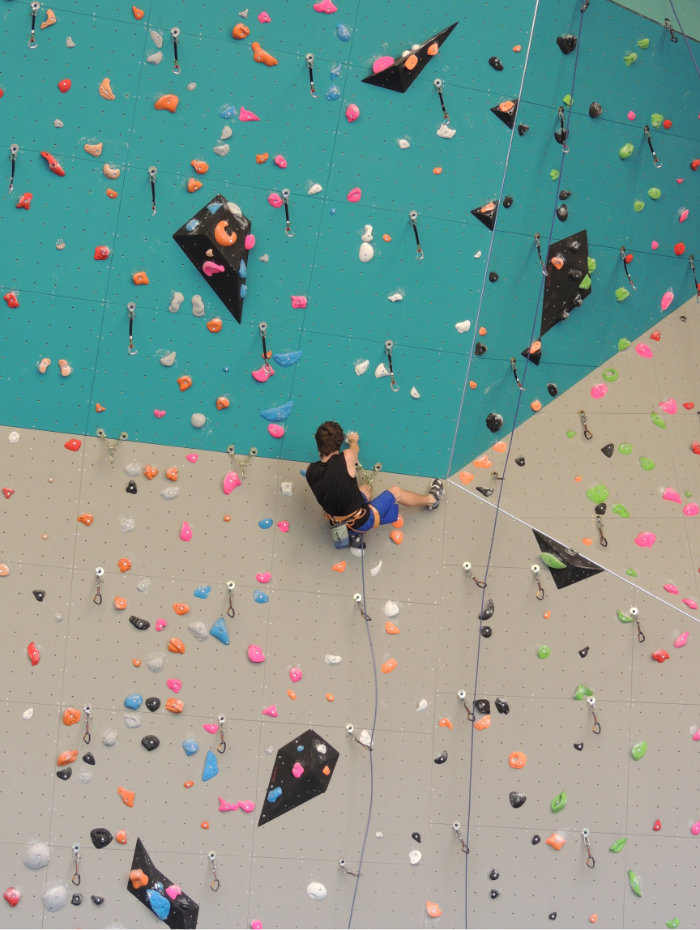design recommendations

Minimum width: 51 m
Minimum height: 16 m
Width of climbing spans: 1 to 1.2 m
Configuration: 17 lanes of 3 m wide, including two of 8 m, two of 6 m, two of 4 m, one of 3 m, two of 2 m, with overhangs of and 1.50 m to 2.00 m. An incline board (+5°) for beginners is required (5°).
The installation of 2 speed lanes 3 m wide x 15 m high with timing system is required.
Number of 3D holds: 7 / m2 to 10 / m2 for 2 to 3 tracks per route in overlapping colours.
Support: can be attached to any support: concrete, cinder block, glued laminated timber, metal frame or free standing
Landing surface: interior = removable landing mats or cushioned flooring recessed in a concrete slab / exterior = rolled gravel 10/15 calibre, 30 cm to 40 cm deep (NF P90/312 and EN 12572-2:2017)
Clearance zone: overhang x 2, i.e., 16 m.
Warm-up area: a bouldering wall of 60 m2 is required (height = 4.10 m above the landing mat). Area without belay points.
Safety: Draw a line (red, for example) at a height of 3 m to indicate the height not to be exceeded without rope (traverse work or bouldering). In case of a multisport area, use a separation curtain or net.
Other equipment / comfort: minimum lighting intensity = 300 lux, uniform / heating and ventilation temperature: 14°C (hot air must not accumulate at the top of the climbing wall).
our services on request :
- design assistance
- free advice / quote without obligation
- assistance in the drafting of specifications
- engineering & technical information (support resistance, standards information, etc.)
Our field experts are at your disposal for any quote.
pyramide tips
When building a gym, plan a dedicated climbing room or space.
Plan at least 3 tracks per span to provide easy routes using all holds.
Install numbering and signage at the foot of the tracks to indicate the level of difficulty by hold colour.
Use a curtain, preferably opaque, to separate the climbing wall from other sports areas.
Consider the climbing equipment needed for the activity.